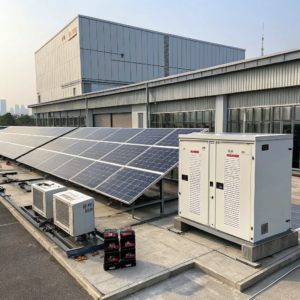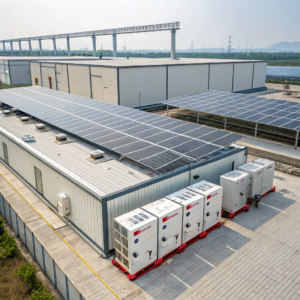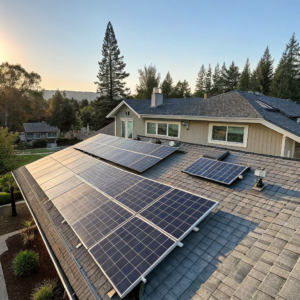Key Technical Challenges for Off-Grid Solar Power Systems
•
Key Technical Challenges for Off-Grid Solar Power Systems
Struggling with unreliable solar power in remote areas? What keeps these systems from performing optimally?
Off-grid solar systems face three core challenges: battery management for extended lifespan, adaptive inverter control for stable power output, and ensuring long-term reliability with minimal maintenance - all critical for sustainable off-grid energy solutions.

Transition Paragraph:
Understanding these technical hurdles isn't just academic - it directly impacts millions living without grid access. Let's explore practical solutions to these persistent solar power pain points.
How can storage batteries be efficiently managed and cycle life optimised in off-grid systems?
Why do solar batteries fail prematurely despite advanced technology?
Optimal battery management requires: accurate state-of-charge monitoring (80-90% max discharge), temperature-controlled environments (15-25°C), and balanced charging algorithms - extending lithium battery lifespan from 3 to 7+ years in off-grid applications.
![Solar battery bank with monitoring system]
Three Pillars of Battery Longevity
-
Charge Control Strategies
- Implement 3-stage charging (bulk/absorption/float)
- Limit discharge depth to 20-30% for lead-acid, 80-90% for lithium
- Use adaptive charging based on weather forecasts
-
Temperature Management
- Install insulated battery enclosures
- Active cooling for temperatures >30°C
- Battery heaters for sub-zero environments
-
Balancing Techniques
- Active cell balancing for lithium systems
- Monthly equalization charges for lead-acid
- Automated capacity testing every 3-6 months
| Parameter | Lead-Acid | Lithium-ion |
|---|---|---|
| Optimal DoD | 50% | 80% |
| Temp Range | 20-25°C | 15-25°C |
| Cycle Life | 500-1200 | 2000-5000 |
Lithium batteries always outlast lead-acid in off-grid systems.
True - When properly managed, lithium batteries typically offer 2-4x longer cycle life than lead-acid alternatives.
How can off-grid inverters achieve load adaptive control to improve power supply stability?
What causes frustrating power fluctuations in solar systems?
Advanced inverters use real-time load profiling and predictive algorithms to: dynamically adjust output (300ms response time), seamlessly blend solar/battery/generator inputs, and maintain voltage within ±5% - ensuring stable power for sensitive equipment.
![High-tech inverter with digital display]
Load Adaptive Technologies
-
Real-Time Monitoring
- Continuous power quality analysis (THD <3%)
- 50ms circuit-level load detection
- Automated load shedding prioritization
-
Hybrid Control Methods
- Solar-battery-generator blending logic
- Predictive energy budgeting
- Silent generator start/stop protocols
-
Voltage Stabilization
- Dynamic voltage compensation
- Multi-layer surge protection
- Reactive power control
All off-grid inverters provide stable voltage output.
False - Only advanced models with adaptive control can maintain strict voltage regulation during load transitions.
How to ensure long-term reliable operation of off-grid systems under zero-emission and low-maintenance conditions?
Can solar systems really operate trouble-free for decades?
Reliability requires: corrosion-resistant components (304 stainless steel), automated diagnostics (IoT monitoring), and preventative maintenance scheduling - achieving >95% uptime with just 1-2 annual site visits for remote installations.
![Drone inspecting solar array]
Reliability Enhancement Strategies
-
Component Selection
- IP65-rated enclosures
- Marine-grade aluminum frames
- UV-resistant cabling
-
Smart Monitoring
- Cloud-based performance tracking
- Automated fault detection
- Predictive failure alerts
-
Maintenance Protocols
- Quarterly remote diagnostics
- Annual physical inspections
- 5-year major component refresh
Conclusion:
Mastering battery management, adaptive inverters and reliability engineering transforms off-grid solar from temperamental to truly dependable power solutions.




